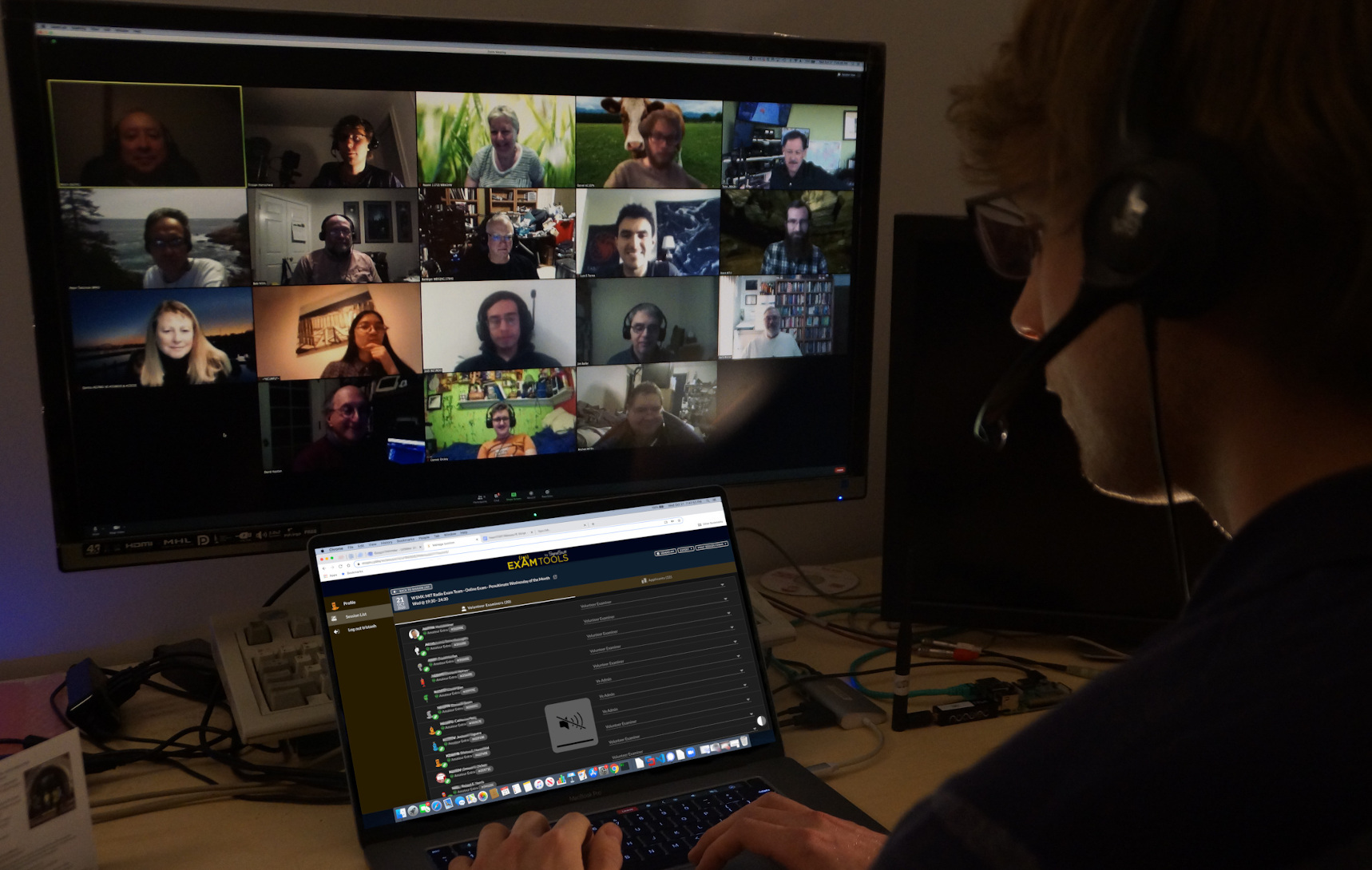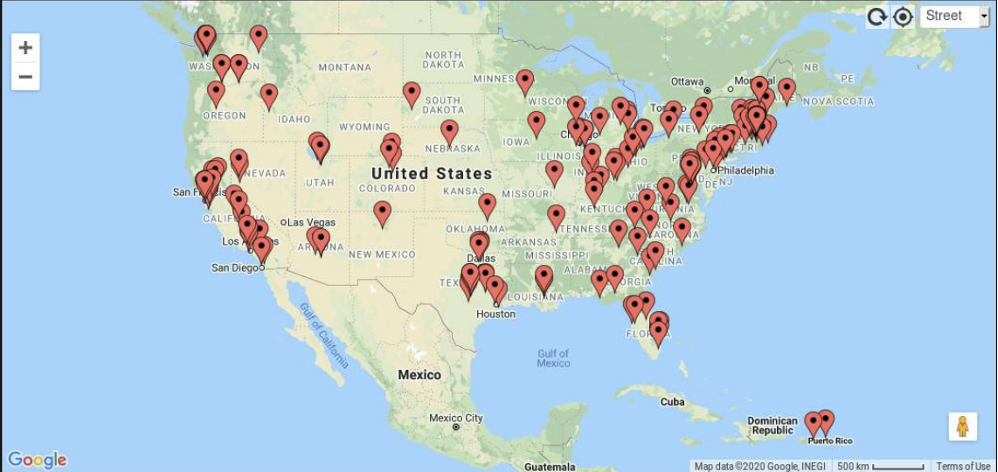October 22, 2020
MIT Radio Exam Team Conducts 250th Fully-Remote Exam
If you’d like to take a remote amateur radio examination with the MIT team, please visit the Ham Exams page for information about how to register for an upcoming session.
Since 1985 — just after the inception of the Volunteer Examiner (VE) system the previous year — once a month, volunteers with the MIT Radio Exam Team have offered amateur radio exams to both aspiring new operators and existing hams seeking to upgrade their license class. For most of its history, these sessions took place in classrooms on the MIT campus. But when the COVID-19 pandemic brought the country to a grinding halt in March, the team was forced to suspend its usual in-person exams — this was the first time in its 35 year history that the team had ever missed a planned session, even when they were scheduled on Christmas Eve or during a blizzard. Many other teams followed suit, creating a nationwide backlog of applicants unable to take their tests.
Not willing to let the pandemic stand in the way of getting new hams on the air, the amateur radio community came together to do what it does best: solve tough problems with ingenuity and technology. Over the course of Spring 2020, hams across the country collaborated to develop a framework for doing something that had never been done before: administering an amateur radio exam fully remotely using video conferencing and a web-based test platform. Given the tight regulations governing these exams by the Federal Communications Commission (FCC), some hams wondered if it was even legal to do so. But thanks to a notice by the FCC clarifying that no rules prohibit the administration of remote ham exams, any lingering doubt was cleared. After all, what better time to get as many people on the air as possible than during a global emergency?
With a green light from the FCC and further approval from its coordinating VEC, W5YI, the MIT Radio Exam Team seized the opportunity to begin offering remote exams. But first, in order to adapt to the radically different procedures inherent to a virtual session, the team needed to go back to the drawing board and completely revamp how it operates. Gone were the days of pencils, paper forms, and classrooms; the new virtual sessions would be using the purpose-built ExamTools website for proctoring the test and filling out applicants’ paperwork. Team members received new training on how to use the software, guide applicants thorough the online test, and even how to spot potential cheaters. Thanks to the fully-electronic workflow, most applicants who test with the MIT team and pass receive their callsigns within 16 hours.

By the end of May, the team was ready to try its hand at its first session. Although it was just a trial run restricted to club officers, the event was a success and two officers who previously held Technician Class licenses left with newly expanded operating privileges (one upgraded to General, and the other to Amateur Extra; both would shortly also acquire their own Volunteer Examiner accreditations and join the team). At its first large public session in June 2020, the team tested eleven candidates. Since then, the team has been able to train and recruit additional VEs to expand its capacity. This exciting new way to get people into the hobby has caused so much excitement that it has motivated nearly all of the officers and many of the active members and friends of the MIT Radio Society (W1MX) and MIT UHF Repeater Association (W1XM) to upgrade their licenses to Extra Class and join the team. As we work with each applicant individually, it takes several more VEs to run a sizable remote session than a traditional in-person one, and conducting these sessions has become one of the clubs’ core social activities at a time when few members get to see each other in person regularly anymore.
Today, the team still offers its large monthly exam sessions on the same schedule it always has, and most other weeks it offers one or two smaller sessions when there is demand and enough VEs are available. The team has also made many new VE friends from other teams and schools across the country, including many from the Plano, TX and Portland, OR teams, as well as the groups at Case Western Reserve University, the New Jersey Institute of Technology, and Bradley University. With their support, the monthly MIT sessions are able to test more than twenty candidates over the course of a two-to-three hour session — much faster than the ten-applicant in-person sessions used to run!
Since the MIT Radio Exam Team began offering remote exams, it has helped over 250 amateur radio operators obtain their first license or upgrade their existing one. No longer limited to serving those residing near the Greater Boston Area, the team has been testing applicants from across the country, including Puerto Rico and the US Virgin Islands, and has even tested US applicants currently overseas! Since the MIT team began offering remote exam sessions, as of October 6, 2020, it had conducted 7.4% of all amateur exams (both remote and in-person) coordinated by the W5YI VEC, and 1.2% of all exams (again, both remote and in-person) in the United States.

Feedback from applicants who tested with the MIT team has been overwhelmingly positive, with one candidate writing, “I can’t say enough good things about the MIT exam team. Their instructions going into the exam were very clear and they were very accommodating and professional.”
At press time, the team does not yet know when it will transition back to offering in-person exams, but it intends to continue offering remote sessions for the foreseeable future. When in-person exams do resume, the team will be offering the ease and simplicity of the same ExamTools platform our remote sessions use by providing each applicant with a touchscreen-based tablet instead of paper forms, question booklets, diagram handouts, and bubble-in answer sheets. The commercial radio exams previously offered by the team unfortunately remain unavailable remotely for the moment — monitor the team’s Ham Exams page for any updates.

